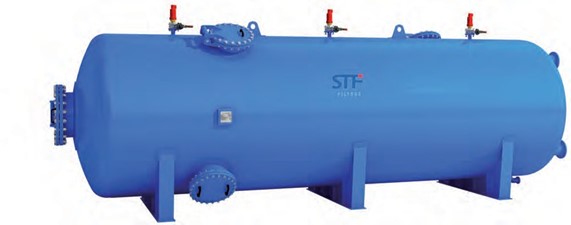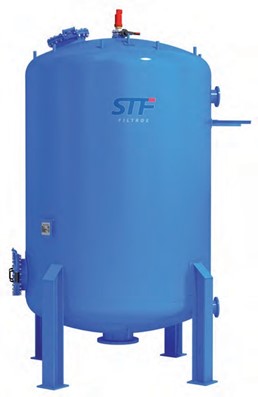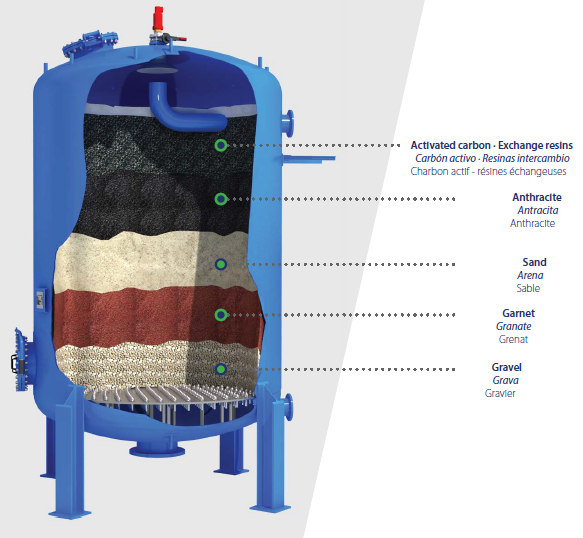


Sand filtration is one of the oldest and most reliable water treatment methods, effectively removing suspended solids, mud, algae, organic matter, and other suspended particles by passing water through a natural sand bed. Sand filters are widely used in water supply, agricultural, and industrial projects due to their simple structure, low cost, and high effectiveness.

Interior view of sand filter
Advantages of Sand Filters:
Applications:
Sand Filter Models: The Spanish company manufactures various sand filters in different sizes and configurations (single, double, multiple) with manual or automatic backwashing capabilities. These filters are made from carbon steel or stainless steel with a durable epoxy coating and are designed for different flow rates.
Export Advantage of Sand Filters: In many countries in the Middle East, Africa, and Southeast Asia, surface water sources or wells have high levels of mud and organic particles. Sand filters, as an economical and effective pre-treatment stage, are crucial for preventing system clogging and reducing maintenance costs of other filters (such as disc and screen filters).

Sand filtration is one of the oldest and most reliable water treatment methods, effectively removing suspended solids, mud, algae, organic matter, and other suspended particles by passing water through a natural sand bed. Sand filters are widely used in water supply, agricultural, and industrial projects due to their simple structure, low cost, and high effectiveness.
Interior view of sand filter
Advantages of Sand Filters:
Applications:

Sand filtration is one of the oldest and most reliable water treatment methods, effectively removing suspended solids, mud, algae, organic matter, and other suspended particles by passing water through a natural sand bed. Sand filters are widely used in water supply, agricultural, and industrial projects due to their simple structure, low cost, and high effectiveness.
Interior view of sand filter
Advantages of Sand Filters:
Applications:
